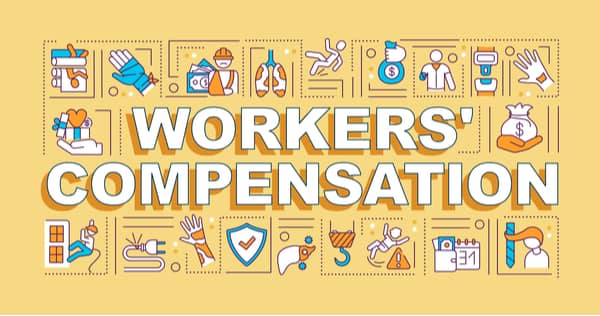Workers’ compensation, otherwise known as workers’ comp, is a state-mandated insurance program specifically designed to provide financial benefits to workers who become injured or ill while on the job. In other words, it is meant to compensate employees for workplace injuries/illnesses.
While the laws surrounding workers’ compensation can vary from state to state, almost all states provide for four basic types of workers’ compensation benefits: medical coverage, disability benefits, vocational rehabilitation, and death benefits.
Our Wilmington workers’ comp attorneys at Ted A. Greve & Associates can help you recover North Carolina workers’ compensation benefits.
Medical Coverage
Medical coverage is a key element of workers’ compensation claims. It is meant to pay for medical expenses related to treating injuries/illnesses suffered as a direct result of one’s employment. It generally covers things like doctor visits, medical tests, hospital stays, medications, physical therapy, travel expenses to and from doctor appointments, medical equipment such as crutches and wheelchairs, and other reasonable and necessary medical treatments.
There are some important things to note in regards to medical coverage under workers’ compensation benefits. First, there is no specific limit to the amount you can be awarded for necessary medical care and treatments. Secondly, this coverage doesn’t have deductibles or copays.
Thirdly, medical benefits are normally provided until you fully recover from your injury or illness, however, depending on the state, there may be restrictions on certain types of treatments. Fourthly, except in an emergency situation, you may be required to use a physician from the employer’s or insurance company’s list of approved medical providers.
Keep in mind that only injuries suffered while on-the-clock are covered. So, any injury sustained while driving to and from work won’t be covered. Injuries sustained following events such as terrorism, acts of violence, and natural disasters are covered provided that you were operating within the scope of your employment.
Disability Benefits
Disability in workers’ comp refers to the incapacity of an employee to complete work-related tasks due to a workplace injury/illness. Disability benefits are designed to cover a percentage of the wages lost by an employee while disabled.
There are four types of disability benefits available depending on how your injury has affected your ability to work and earn:
- Temporary total disability: These types of benefits are available to employees who’ve been rendered completely disabled due to the injury but for a short period.
- Temporary partial disability: These benefits are available to injured employees who are able to return to work but at reduced capacity.
- Permanent partial disability: PPD benefits are available to employees who’ve been partially disabled by a permanent injury.
- Permanent total disability: These are available to employees who’ve suffered a serious injury that permanently prevents them from going back to work.
Different states have different rules in regards to the maximum amount you can receive for each category of disability benefits and how long they will be provided.
Vocational Rehabilitation
Vocational rehabilitation benefits are in place to cover the costs of care and training required to help restore the skills and abilities you need to get back to work or find a new job elsewhere if your injury prevents you from returning to your previous job.
Vocational rehabilitation benefits cover things like retraining, evaluation, tuition, career counseling, and other programs necessary to help you find employment.
Workers’ Compensation Death Benefits
Death benefits are available to the spouse, children, or dependents of an employee who dies as a result of a work-related injury or illness. These benefits are primarily designed to compensate the surviving family members for the loss of financial support. However, they also cover funeral expenses.
In most states, death benefits are calculated as a percentage of the deceased employee’s expected future income.
Does Workers’ Compensation Cover Pain and Suffering?
Any type of injury, including a workplace injury, can leave you dealing with intense physical pain and emotional suffering. As a result, you might be wondering whether you can recover pain and suffering damages through a workers’ compensation claim.
Unfortunately, workers’ compensation doesn’t cover pain and suffering. To recover these damages, you will need to file a personal injury claim against a third party. Keep in mind that you can’t file a lawsuit against your employer as by accepting workers’ compensation benefits you relinquish your right to sue the employer.
You can, however, file a lawsuit against, let’s say, an equipment manufacturer or property manager if your workplace injury was a result of their negligence.
Why Was My Workers’ Compensation Claim Denied?
There are plenty of reasons why your claim might have been denied, including:
- The lack of witnesses
- The lack of adequate information regarding the accident and/or injury
- Missed deadlines
- Discrepancies in your report
- Not using approved medical providers
- Preexisting medical conditions
- Employment status
- The injury occurred outside the scope of your employment
If you believe that your workers’ compensation claim was falsely denied, you need to get in touch with a Wilmington workers’ compensation lawyer as soon as possible to protect your rights.
With an experienced workers’ compensation attorney, you have the best chances of successfully appealing the denial and securing full and fair compensation.
Get Professional Legal Help With Your Workers’ Compensation Claim
At Ted A. Greve & Associates, we have a team of highly skilled and experienced Wilmington workers’ compensation lawyers who are committed to helping victims of workplace injuries or illnesses secure the best outcome in their workers’ compensation claim.
We offer a free consultation session, where we will evaluate the details of your case and establish whether you have a valid claim or not, and advise you on the best course of action. Keep in mind that we handle workers’ compensation cases on a contingency basis. You don’t have to pay us anything till we secure favorable compensation.
Call our offices today at (844) 387-8677 for the best legal assistance.


